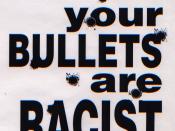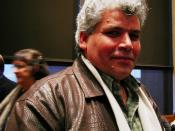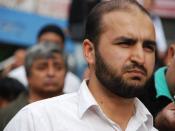In today's world, many conflicts about racism and prejudice are prevailing and nearly impossible to stop. Racial profiling is socially defined as the harassment and intimidation of innocent citizens because of their ethnicity. However, hard statistical evidence shows that young minorities are more prone to commit disproportionate numbers of crimes than that of the larger population. Therefore, it goes to show that racial profiling is nothing more than common sense used by police officers and average citizens alike.
In March of 2000, police were acquitted of charges surrounding the murder of Amadou Diallo, an innocent man whose body was riddled with "41 bullets from that of law enforcement officers," says Ellis Cose of Newsweek. The police were searching for a rapist in Diallo's area when they came to his door wanting to ask him questions. It did not go as they had planned, as Diallo was just a man in the wrong place at the wrong time.
The case has become a fuel that is feeding the fire of colorblind zealots who demand that racial profiling cease. As with Rodney King, a police mistake has made general law enforcement look bad.
Critics say that racial profiling is evidence of institutionalized racism, but profiling can just as easily be a reasonable strategy based on statistics that show young black and Hispanics committing violent crimes in their area. The same people who insist on racial counting of college admissions and employment demand colorblind statistics in police work. The Diallo case illustrates the confusion surrounding racial profiling. There is no doubt he died by police fire, but he was not approached because he was black, he was approached because he fit the description of a man wanted for multiple rapes in the same neighborhood.
First off, the mixed-race jury in Albany, New...


